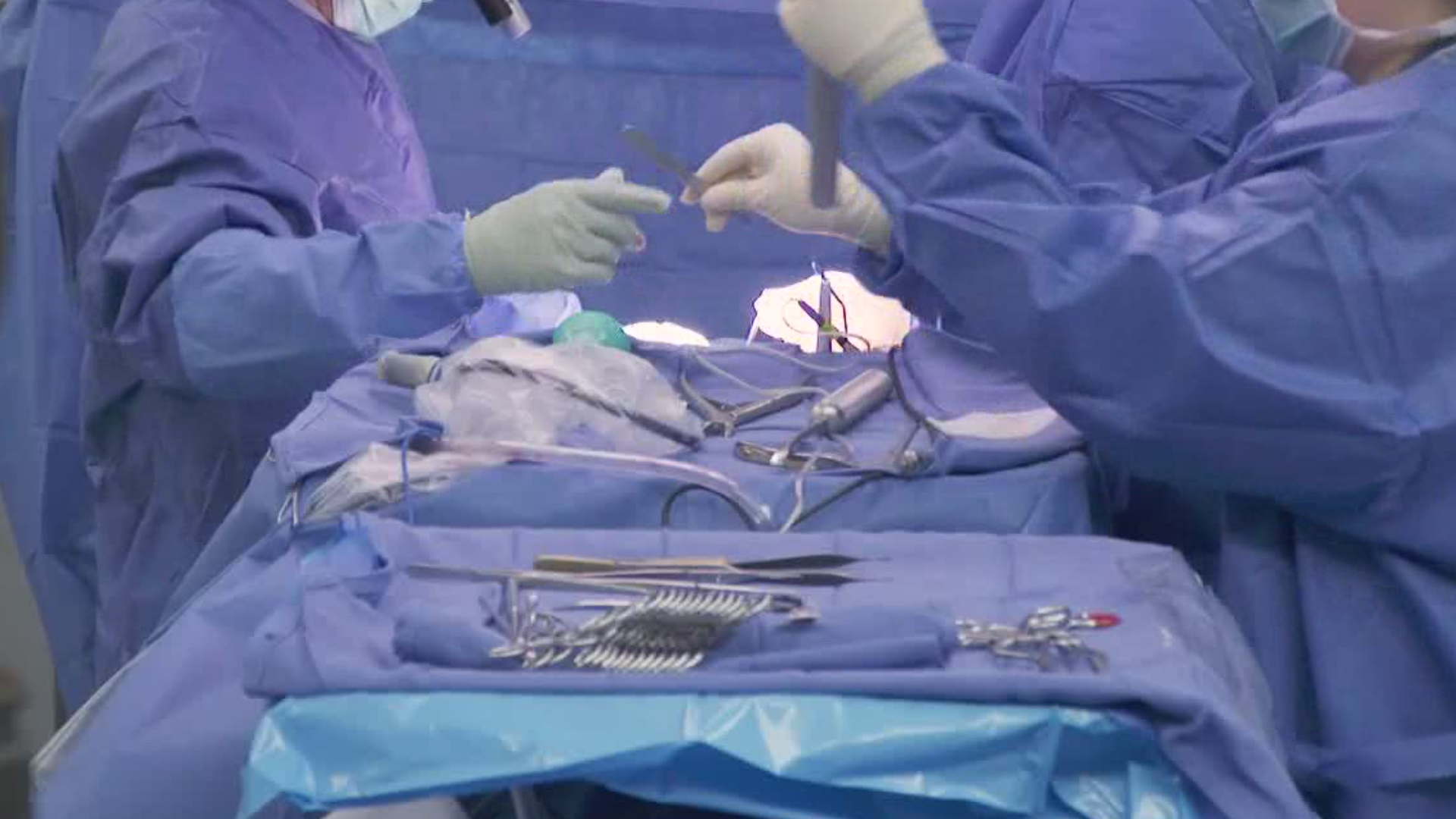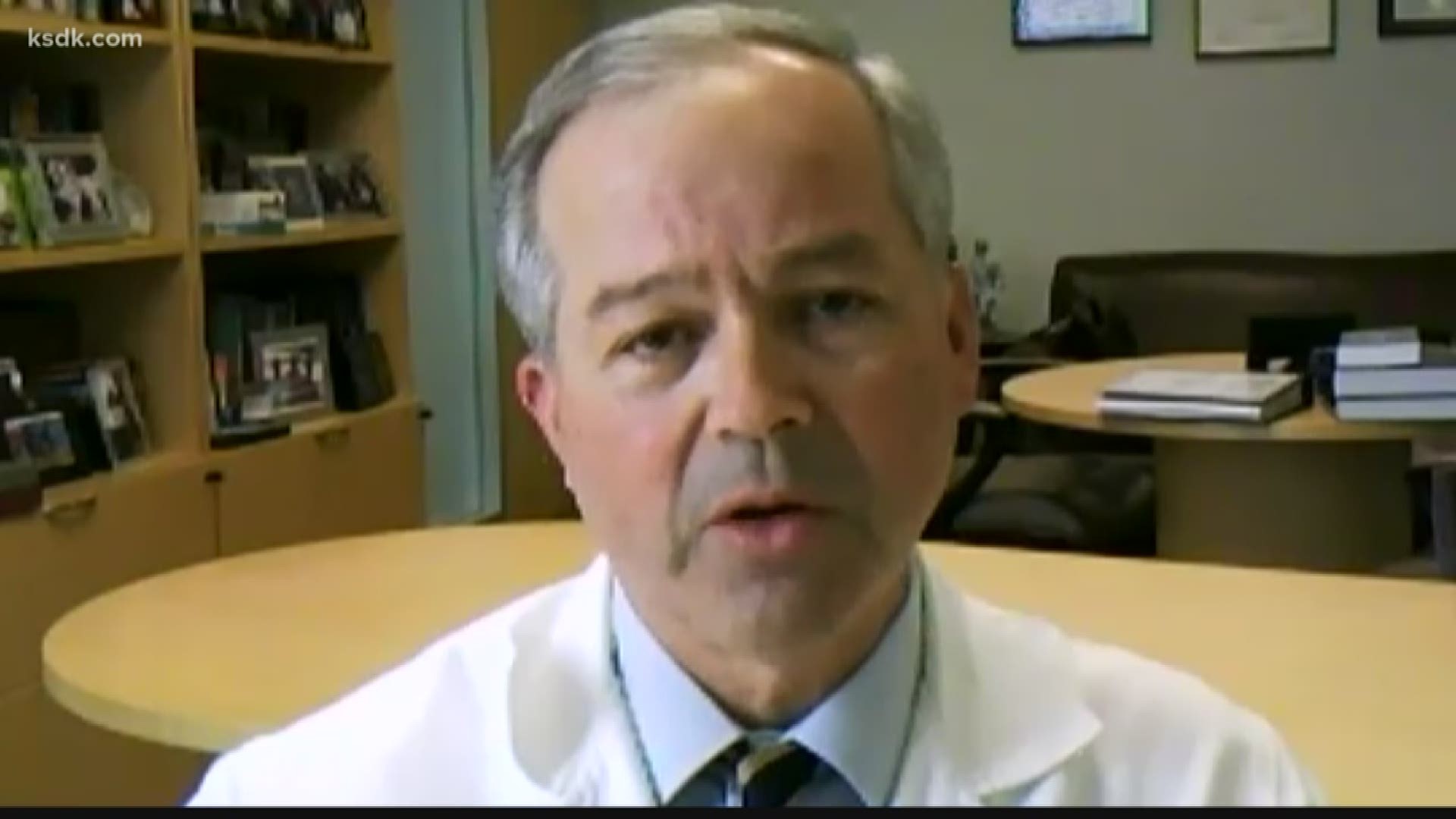ST. LOUIS — Due to the coronavirus pandemic, St. Louis families have been forced to put off big milestones like birthdays and weddings.
Ido Sella’s family thought they would have to wait even longer for the life-changing surgery that would enable him to walk.
Ido is 2 years old. He was born with cerebral palsy, a movement disorder that hindered his coordination and strength.
“Other children started to crawl, started to sit. He could not do it,” said his mother, Efrat.
When it became clear that the delays in Ido’s development were more than just a side effect of being born premature, doctors in their home country of Israel told his family that Ido’s best chance to walk was in St. Louis.
That’s because Children’s Hospital offers a revolutionary surgery called selective dorsal rhizotomy, or SDR. But the surgery is best done as early as possible, before the long-term effects of cerebral palsy can set in. For more than a year, the Sella family has been preparing for their trip to St. Louis.
Days before they left in mid-March, the coronavirus pandemic threatened to put it all on hold.
COVID-19 means a longer wait for hope
The waiting list for SDR surgery is three years long. Families come from all over the world for Dr. T.S. Park, who specializes in the procedure.
“We sort of pioneered this surgery,” said Park. “We have patients from 80 countries.”
Park has helped restore movement to thousands of people with spastic cerebral palsy. The surgery involves carefully cutting the spinal “rootlets” that send faulty signals to affected muscles.
“For example, a child in a wheelchair. We can make them walk independently,” said Park.
“Parents want to come here. St. Louis, it's kind of a mecca for them,” he added.
The potential for the surgery to help Ido motivated the Sella family to travel halfway across the world even with the risk of the coronavirus pandemic. They reached St. Louis by way of Ethiopia, Togo and New Jersey. The journey took two days.
But when they arrived, they were told it was too late.
“They tell us all the surgery are going to be canceled,” said Efrat.
“We were not prepared. We didn't have enough protective equipment. And also, because this virus spread so fast, we thought it was so dangerous,” said Park. “We did the right thing.”
For Ido and 80 other families, this surgery, and learning to walk, would have to wait.
Operations on hold
According to the Missouri Hospital Association, hospitals around the state are seeing half as many patients as normal for non-COVID-19 care. Mercy, BJC HealthCare and SSM Health didn't share specific numbers but confirmed they also saw a dramatic drop in surgeries.
Dr. Bruce Hall, vice president and chief quality officer at BJC, said the delays affect thousands of procedures.
“It does mean our volumes are down and it does mean, in some cases, it means we have to think about how we rearrange our workforce,” said Hall.
The financial impact has been huge. The Missouri Hospital Association said the loss of revenue from all the procedures and care put off is equal to $32 million every day for hospitals across the state. Washington University Medical School is projecting a revenue loss of $150 million through the end of the fiscal year.
For Ido, the cancellations and delays meant they wouldn’t be able to treat a condition that can get worse with every passing month.
Surgeries back on track
As Efrat acknowledged, coming to St. Louis at all was a huge risk. It paid off, eventually.
The family stayed in quarantine for two weeks. After that, they received some good news.
“We got special approval from the dean of the medical school,” said Park. Ido’s SDR procedure was back on the schedule.
His surgery was a success. Someday soon, Efrat said, “He should be able to walk independently.”
With restrictions on elective surgeries easing up across Missouri, Park said he’s rebooking his patients starting in June.
“I'm anxious to go back to work because we have other patients to take care of,” he said.
Representatives from BJC and Mercy told 5 On Your Side they plan to resume elective surgeries in the coming weeks. SSM scheduled its surgeries to resume Thursday.
The Missouri Hospital Association offered this guidance to hospitals as they put elective procedures back on their calendars:
“Consistent with Gov. Mike Parson's Show Me Strong Recovery Plan, MHA has provided all hospitals guidance on reopening for medically necessary care. Both the governor's plan and MHA guidance encourage a cautious, locally driven approach to increasing nonemergent, non-COVID-19-related care. Three paramount considerations are included in the approach, including maintaining a flat trajectory of the virus, access to adequate levels of PPE and increased testing.”


